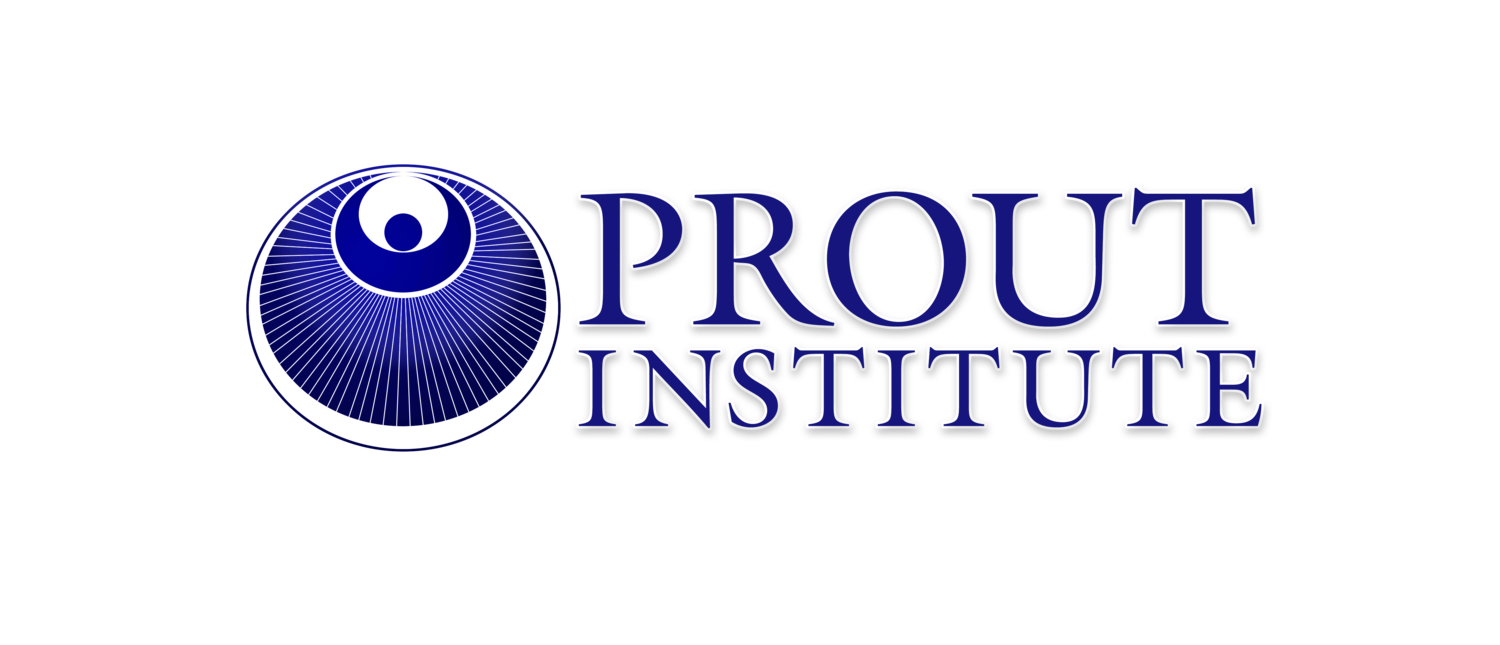
Prabhat Ranjan Sarkar
Introduction
PROUT was first put forward by Prabhat Ranjan Sarkar (1921 – 1990), a philosopher, social reformer, and spiritual teacher dedicated to the task of planetary transformation. Through his actions and teachings he inspired many people to develop and use their potential and to take active responsibility for humanity’s welfare.
Scroll down the page or click the subject links below to learn more about P.R. Sarkar’s life and work.
Human Services ● Environmentalism ● Feminism ● Art ● Education ● Language ● Medicine
Spirituality ● Philosophy ● PROUT ● Commitment to Values ● Personal Life ● Holistic Approach
Human Services
Sarkar was remarkable for his wide range of contributions to humanity. In the realm of human services, he established a global disaster relief agency and inspired diverse community service projects, including rural development schemes, medical clinics, group homes, and food distribution programs.
Environmentalism
To help preserve the genetic diversity of Earth’s plant life, he established a network of botanical gardens. Through his initiative, an animal sanctuary for endangered species was set up in West Bengal. And he condemned the destruction of wildlife habitats and the cruel treatment of animals used for human food and service.
Feminism
Sarkar was committed to uplifting women. He spoke out against dogmas, social customs, and injustices that oppress women; and he inspired women to work together to increase their economic, intellectual, social, and spiritual power. He also affirmed the significance of women’s contributions to human history, including the matriarchal origins of civilization and women’s important role in the development of spirituality.
Art
Sarkar recognized the importance of artistic creativity and established an association for the expression of the arts, giving it the mission to create “art for service and blessedness”. He composed 5018 songs, known as Prabhat Samgiita (Songs of the New Dawn), which express uplifting sentiments in lyrics that appeal to common people.
Education
A philosophy of education developed by Sarkar, which emphasizes humanist values and nurturing the human spirit, is being used in hundreds of schools around the world. Among his last projects was laying the groundwork for Bhagavad Dharma University, an institution of higher learning that will include research into spiritual practices.
Language
Sarkar spoke over 200 languages. His discourses on language are used as texts in universities in India. He extended the expressive range of Indian languages by adding thousands of Sanskrit-derived words to their vocabularies. He wrote grammar texts for English and Hindi. His book series, A Collection of Words, expounds on words as a vehicle for exploring a wide panorama of human knowledge and experience.
Medicine
In the field of medicine, he authored a book of medical remedies that combines herbal, yogic, and naturopathic treatments for common diseases, and that presents yogic preventive health practices.
Spirituality
Sarkar was a spiritual master and formulated a spiritual path grounded in perennial meditation practices and that reintegrates practices of the yogic tradition. He trained nearly two thousand meditation teachers who have taken these powerful practices to people throughout the world, offering them at no cost to all who have interest.
Philosophy
Sarkar extensive works on philosophy resolve the contradictions between science and mysticism, idealism and materialism, action and detachment, monism and dualism, relative and absolute views on ethics, development and sustainability, and personal and political approaches to liberation.
PROUT
Sarkar’s socioeconomic philosophy, PROUT, has inspired community economic development and regional populist political movements. PROUT is being seen by many who are socially aware as providing a comprehensive and viable post-capitalist vision that balances sustainability with material development and that re-localizes economic power while promoting global authority.
Commitment to Values
During his lifetime, Sarkar faced much opposition, as his criticisms of religious, cultural, and political dogmas threatened powerful groups in his native India. He was in jail from 1972-78, held without bail on politically motivated charges for which he was eventually acquitted. While in prison he was target of an assassination attempt, which led to his undertaking a fast lasting over five years.
Personal Life
Sarkar’s lived a life of simplicity and conducted all his affairs in a manner consistent with his beliefs. Despite his notoriety, he avoided contact with the media or the curious public.
Sarkar had a single-minded mission: to promote human liberation in its fullest expression and to advance the welfare of humanity and other living beings. His untiring commitment this noble ideal attracted many high-minded followers.
Holistic Approach
Sarkar recognized that humanity is at a momentous juncture, poised between intensifying crises on the one hand and a planetary renaissance on the other. He urged people to be active, to struggle against the forces that are fragmenting, oppressing, and exploiting humanity; and that are violating the natural world. He called on all good-hearted people to end humanity’s degradation and develop its higher potential.
Sarkar was holistic in his approach. As a spiritualist he taught that human fulfillment ultimately comes from experience of the Divine. But he combined the orientation of the mystic with a firm commitment to social development. To further social progress, he challenged the dogmas that stifle the human spirit, he encouraged struggle against tyranny and exploitation, and he sought to bring human existence into harmony with the natural world.
Sarkar made great efforts to develop moral, loving, and dedicated individuals. Through his example, his teachings, his spiritual practices, and his sacrifice, he sought to cultivate human greatness.














